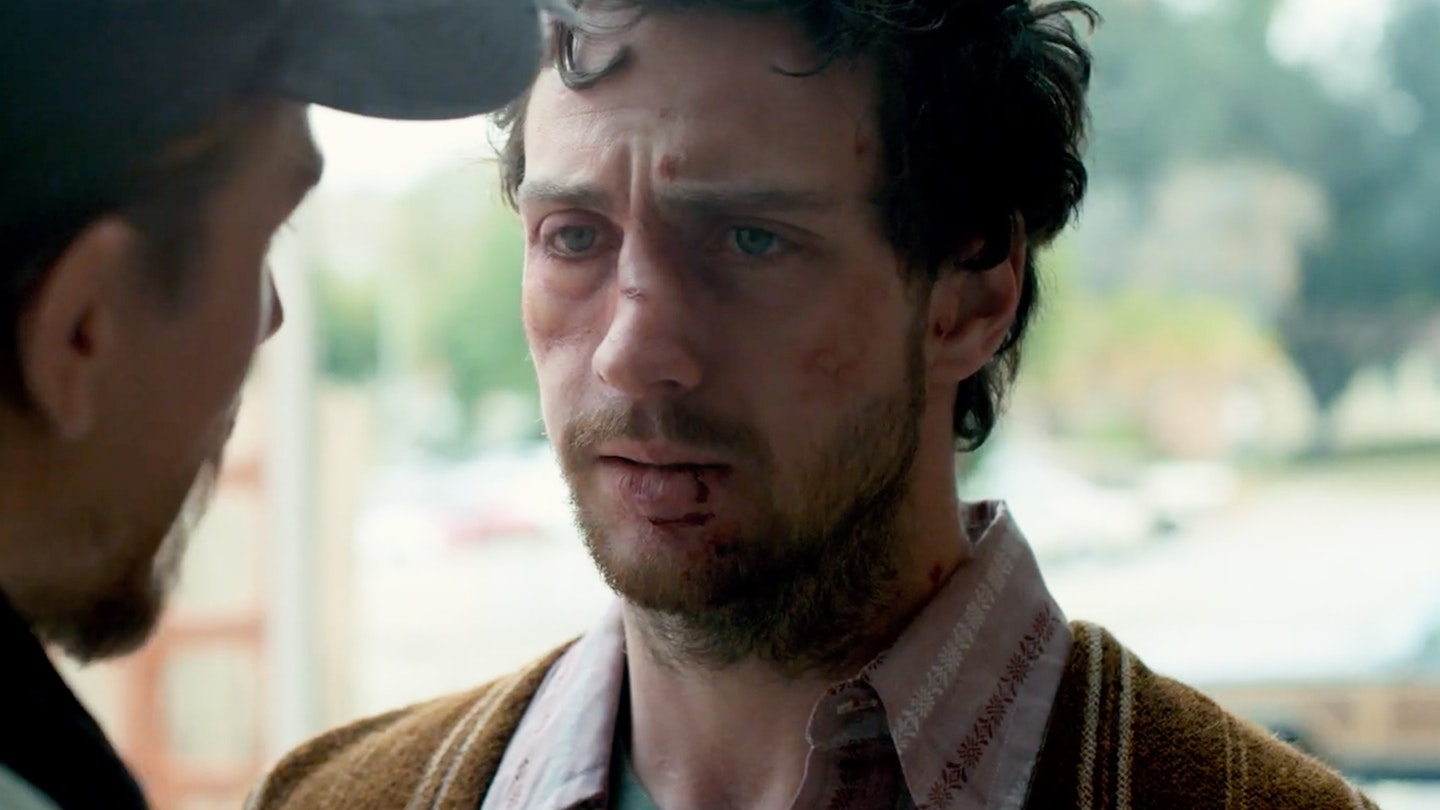A Million Little Pieces begins with a blast – Aaron Taylor-Johnson’s alcoholic crack-addict James losing himself in a naked narcotic blowout, then suffering a severe comedown on a plane. What a horrible mess he is, bruised, bewildered, desperate and pitiful, an ugly wreck. Here, Taylor-Johnson, in a film he co-wrote with Sam Taylor-Johnson, is by far the best he’s ever been, rivetingly ruined, and the film doesn’t flinch: as James is subjected to anaesthesia-free root canals, alongside similar physical batterings, you wince and cringe.
After the opening dramatics we’re left with a somewhat yawnsome yarn.
Alas, the more things pick up for James, the more the film careens downhill, unafraid of melodramatic monologues, not shy of sentimentality. It is based on Frey’s 2003 memoir, which turned out to be not quite a memoir, filled with falsehoods. As such, this film’s source material is, in today’s parlance, problematic. This situation itself, though, is more interesting than the story beats adapted here: watching someone go through the 12-step programme is not particularly dramatic, and maybe Frey’s presence as executive producer explains why a more probing account of the whole affair wasn’t explored instead of this sappy thing. A more innovative account of what was going on inside his head, both at the time and in his remembrances, would have been more illuminating and more interesting. Only an opening quote from Mark Twain alludes to the scandal, which feels like a limp acknowledgement.
In place of any such complexities we get a straight-up rehab story, and after the opening dramatics we’re left with a somewhat yawnsome yarn. There’s just not enough going on, especially compared to the recent television adaptation of Edward St Aubyn’sPatrick Melrosebooks, in which addiction issues were a launchpad into a much more unpredictable and moving character study. This film is shot with warmth and love, but as far as emotional entertainment goes, it’s a bit of a shrug.
